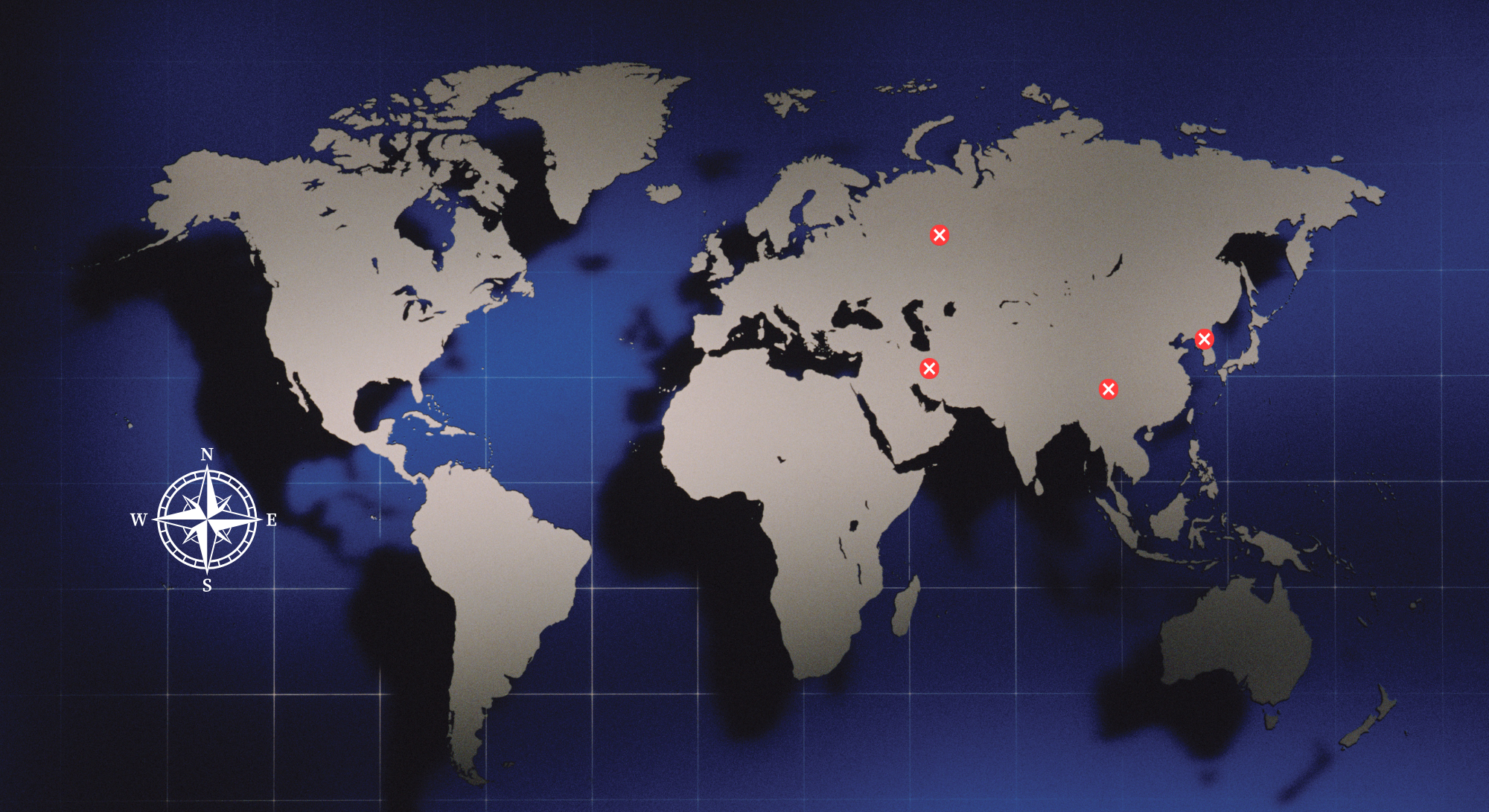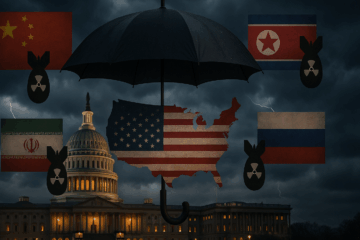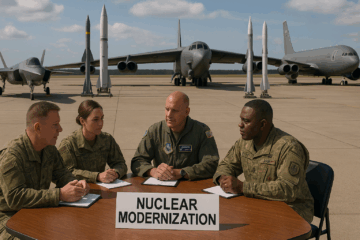The intersection of artificial intelligence (AI) technologies and strategic intelligence operations represents a pivotal frontier in the security landscape. Rapid advancements in AI, machine learning (ML), and data analytics will revolutionize the capabilities of intelligence agencies worldwide, offering unprecedented opportunities for enhanced situational awareness, predictive analysis, and decision-making support.
From counterterrorism efforts to geopolitical forecasting, the applications of AI in strategic intelligence operations span a diverse array of domains, shaping national security strategies and global geopolitics alike. However, alongside these transformative capabilities come complex ethical, legal, and policy considerations that necessitate careful navigation.
Foremost, AI has the ability to continuously monitor news sources, social media feeds, and other open-source intelligence channels in real time, alerting analysts to relevant developments as they happen. Sifting through massive datasets from diverse sources that include both open-source and classified reporting will allow analysts to quickly dismiss the “noise” and more easily discover relevant information that might otherwise be missed by human-driven analysis. Tedious and repetitive tasks, like report generation or data cleaning, can be automated, increasing efficiency and allowing analysts to focus their time and efforts on critical strategic analysis.
Furthermore, algorithms will unearth subtle trends, correlations, and anomalies that traditional analytical methods often overlook. This enhanced capability will empower proactive decision-making based on insights that would have otherwise remained hidden. Algorithms can help identify and mitigate potential biases in human analysis, promoting more objective decision-making processes. AI tools can act as a “smart assistant,” highlighting relevant information, providing summaries, and offering different perspectives to enhance human analysis. This frees up analysts from mundane information-gathering tasks and allows them to focus on higher-order strategic thinking.
Expanding further, the advanced collection and analytical features of AI will greatly assist with gauging potential instability in regions of interest, analyzing competitor activities, patent filings, and market trends, which can be streamlined with AI to quickly identify threats and opportunities. AI can analyze network traffic to detect anomalies indicative of potential cyberattacks, allowing for a faster response to cybersecurity threat detection.
The capabilities of generating and analyzing various potential scenarios based on historical data and current trends, in a fraction of the time needed for humans, provides analysts with a more comprehensive analysis for decision-makers to assess the likelihood of different outcomes and a higher confidence in predicting and understanding the consequences of their decisions. The AI-powered predictive analytical forecasting potential of geopolitical events, economic shifts, or emerging technologies that might create future strategic risks or opportunities for governments is attractive to all states as they leverage advantages to expand influence and power.
Incorporating AI capabilities into the strategic intelligence realm is not without its challenges or concerns. It will be imperative to ensure meaningful human control over any AI systems associated with strategic intelligence. Other national security assets should be considered a high priority at this critical onset of AI applications focused on the establishment of safeguards against autonomous decisions.
Considering AI relies on the accuracy and completeness of data, ensuring effective measures are in place to maintain data integrity and avoid garbage-in, garbage-out scenarios is critical. It is vital that AI models are interpretable so that analysts can understand the reasoning behind recommendations. This builds trust and facilitates better decision-making. Addressing biases in AI models and ensuring algorithms are used in a transparent and responsible manner that aligns with organizational values is also important.
Advancing AI may process vast amounts of data in times of crisis, and do it far faster than humans, though there is understandable concern about the appropriate level of AI involvement in high-stakes decisions where time is of the essence. For example, should AI have any control over nuclear launch decisions, and if so, how much? Errors in AI analysis or reliance on faulty data could lead to miscalculations and unintended escalation.
As intelligence agencies increasingly rely on advanced technologies like AI, there is a need for robust regulation and oversight to prevent abuse of power, misuse of data, and violations of civil liberties. Policies should establish clear guidelines for the collection, storage, and use of intelligence data, as well as mechanisms for accountability and transparency.
The proliferation of intelligence data and the use of advanced analytics pose challenges related to data security and protection. Policies must address issues such as data encryption, secure storage, access controls, and measures to safeguard against cyber threats and breaches.
Given the global nature of many intelligence threats, there is a need for international cooperation and the development of norms and standards governing the use of AI technologies. Policies should promote collaboration among intelligence agencies from different countries while respecting sovereignty and legal frameworks.
AI algorithms used in intelligence operations may exhibit bias or produce unfair outcomes, particularly if trained on biased data or programmed with flawed assumptions. Policies should address these concerns through measures such as algorithmic transparency, fairness assessments, and diversity in data sources and large language model (LLM) development.
The development and deployment of AI technologies can confer strategic advantages to nations or organizations. Policies may need to balance the pursuit of such advantages with efforts to prevent destabilizing arms races or conflicts arising from the use of intelligence capabilities.
The use of AI capabilities, particularly in areas such as cyber warfare or information operations, can raise the risk of deterrence failures or unintended escalation. Policies should seek to establish clear deterrence strategies, rules of engagement, and mechanisms for de-escalation to mitigate these risks. As AI technologies become more sophisticated, intelligence operations will increasingly involve human-machine collaboration. Policies should address issues such as human oversight, accountability for algorithmic decisions, and the ethical implications of human-AI interaction in intelligence activities.
The future of AI and strategic intelligence operations is poised to be characterized by continued innovation, integration, and adaptation to evolving geopolitical, technological, and societal landscapes. Further breakthroughs in AI technologies, including deep learning, natural language processing, and reinforcement learning, will enable intelligence agencies to extract deeper insights from vast and diverse datasets. This will enhance capabilities for predictive analysis, anomaly detection, and decision support across a wide range of intelligence operations.
The integration of AI into autonomous systems, such as unmanned aerial vehicles (UAVs) and unmanned underwater vehicles (UUVs), will certainly revolutionize intelligence, surveillance, and reconnaissance (ISR) capabilities. These systems will be capable of operating in contested or denied environments with reduced risk to human operators and logistical support assets.
The proliferation of cyber threats and the increasing reliance on information warfare tactics will drive the expansion of cyberintelligence capabilities. Intelligence agencies will focus on detecting, attributing, and mitigating cyberattacks, as well as leveraging information operations to shape narratives and influence adversaries.
The rise of social media platforms and digital communication channels will continue to reshape intelligence gathering and analysis. Open-source intelligence (OSINT) and social media analysis techniques will play an increasingly prominent role in monitoring global events, assessing public sentiment, and identifying emerging threats. Intelligence agencies will increasingly collaborate with other government agencies, international partners, and private-sector entities to leverage complementary expertise and resources. Fusion centers will facilitate the integration of intelligence from multiple sources to produce more comprehensive and timely assessments.
Intelligence agencies will need to enhance their resilience and adaptability to rapidly evolving threats, including emerging technologies, geopolitical shifts, and unconventional adversaries. This will require agile organizational structures, flexible operational frameworks, and continuous investment in training and capabilities development.
Overall, the future of AI and strategic intelligence operations will be characterized by a dynamic interplay between technological innovation, geopolitical dynamics, and societal trends. By embracing these trends and addressing associated challenges, intelligence agencies can enhance their effectiveness in safeguarding national security and advancing strategic objectives in an increasingly complex and interconnected world.
As the United States intelligence community navigates the complexities of an increasingly interconnected and unpredictable world, the future of strategic intelligence operations will be defined by our ability to harness the power of AI technologies while mitigating their risks and ensuring their responsible and ethical use. By embracing innovation, fostering collaboration, and upholding democratic values, intelligence agencies can effectively confront the challenges of the 21st century and advance the interests of peace, security, and prosperity for all.
Joshua Thibert is a Contributing Senior Analyst at the National Institute for Deterrence Studies (NIDS). With over 30 years of comprehensive expertise, his background encompasses roles as a former counterintelligence special agent within the Department of Defense and as a practitioner in compliance, security, and risk management in the private sector. The views expressed in this article are his own.
About the Author

Joshua Thibert
Joshua Thibert is a Contributing Senior Analyst at the National Institute for Deterrence Studies (NIDS)with over 30 years of comprehensive expertise, his background encompasses roles as a former counterintelligence special agent within the Department of Defense and as a practitioner in compliance, security, and risk management in the private sector. His extensive academic and practitioner experience spans strategic intelligence, multiple domains within defense and strategic studies, and critical infrastructure protection.




